 |
| With tax exemption of about 7,500 billion VND per year, the Government assesses that the tax exemption policy does not reduce budget revenue compared to the present. |
Strategic turning point for Vietnamese agriculture
Agriculture, farmers and rural areas have long been identified as pillars in the industrialization, modernization and protection of the Fatherland. The Government emphasized that continuing to exempt agricultural land use tax is necessary to institutionalize the Party's policies, affirming the role of agriculture in ensuring food security, promoting large-scale production, enhancing international competitiveness and improving farmers' lives.
The policy of exempting agricultural land use tax since 2001 has proven to be extremely effective. The Government assessed that this policy helps reduce the financial burden on farmers, encourage investment in agriculture, promote land accumulation and rural modernization. In the context of economic integration, climate change and land fragmentation, extending the policy until 2030 is an urgent solution to restructure the agricultural sector, ensure food security and sustainable development.
More than two decades of implementing the agricultural land use tax exemption policy have brought about clear positive impacts. From 2001-2010, the average total tax exemption reached VND 3,268.5 billion per year, increasing to VND 6,308.3 billion per year in the period 2011-2016; VND 7,438.5 billion per year in the period 2017-2020, and stabilizing at VND 7,500 billion per year in the period 2021-2023. The policy directly supports farmers, reduces production costs, encourages investment and promotes large-scale production models such as farm economy, cooperatives and large fields.
The outstanding result is the remarkable growth in agricultural exports, from 4.7 billion USD in 2001 to 53.22 billion USD in 2023, putting Vietnam in the group of 15 largest agricultural exporting countries in the world and second in Southeast Asia, leading in items such as wood, seafood, cashews, and pepper. The Government affirmed that the tax exemption policy contributes to improving the competitiveness of Vietnamese agricultural products in the context of international integration, especially through the CPTPP and EVFTA agreements.
However, Vietnamese agriculture still faces many challenges. Fragmented and dispersed land makes large-scale production difficult. Only 5.5% (out of a total of 900,000 enterprises nationwide), or about 50,000 enterprises, of which 96% are small and micro enterprises, invest in agriculture, so they have not met the potential and requirements of restructuring the industry. Agricultural cooperatives mainly develop in breadth, with low efficiency and lack of competitiveness.
The situation of abandoned land and misuse of land still exists, requiring stronger incentive policies to encourage investment and application of science and technology. The Government believes that exemption of agricultural land use tax is an effective financial solution, encouraging businesses and farmers to stick with land, develop sustainable production and increase added value.
Leverage for sustainable development
The draft Resolution on agricultural land use tax exemption was designed by the Government to be simple but focused, with two core contents to consolidate and prolong the policy that has proven effective.
First of all, the draft Resolution proposes to extend the exemption period for agricultural land use tax until December 31, 2030, continuing to apply according to Resolutions 55/2010/QH12, 28/2016/QH14 and 107/2020/QH14. This policy applies to organizations, households and individuals directly using agricultural land for production, including cultivated land, aquaculture land and forest land. In particular, the area of agricultural land allocated by the State to organizations for management, but not directly used for production but leased to other organizations and individuals under contracts will not be exempted from tax. This regulation aims to ensure effective and proper use of land, avoiding waste of resources. The policy inherits stable regulations for more than 20 years, keeping the same subjects and scope of application to ensure continuity and consistency.
Second, the Resolution stipulates that it will take effect from January 1, 2026, immediately after the current policy under Resolution 107/2020/QH14 expires on December 31, 2025. This time ensures no interruption in support policies for farmers and businesses, creating stability for implementing agricultural restructuring programs. The Government emphasizes that the extension period until 2030 is consistent with the 2021-2030 Socio-Economic Development Strategy, especially the goal of maintaining 3.5 million hectares of rice land to ensure national food security.
The Government assessed that the tax exemption policy does not reduce the current budget revenue, as it has been applied continuously since 2001. With the tax exemption amount of about VND 7,500 billion per year, accounting for only 0.00057% of the total budget revenue in 2023, the financial impact is considered insignificant compared to the socio-economic benefits. The Resolution is based on a thorough assessment of more than 30 years of implementing the agricultural land use tax policy, affirming the backwardness of the method of calculating tax in rice and the necessity of tax exemption to support modern agriculture, meeting the requirements of integration and sustainable development.
The Government expects the Resolution to bring outstanding results, continuing to provide direct financial support to farmers, businesses and cooperatives. This policy helps reduce input costs, encourage investment in expanding production scale, thereby improving productivity, quality and added value of agricultural products. The tax exemption of VND 7,500 billion per year is an important financial resource to develop farm economic models, large fields and agricultural value chains, meeting the requirements of international integration through the CPTPP and EVFTA agreements.
The Resolution will promote land accumulation and concentration, overcome fragmentation and abandoned land, contributing to stabilizing 3.5 million hectares of rice land to ensure food security by 2030, as set out in Conclusion 81-KL/TW. The policy will create more jobs in rural areas, where more than 60% of the country's workforce is concentrated, thereby increasing income, sustainably reducing poverty and building new rural areas. Agricultural exports are forecast to maintain growth momentum, consolidating Vietnam's position in the group of 15 leading agricultural exporting countries in the world.
The policy is consistent with international practices, similar to the exemption of agricultural land use tax in Ireland, the UK, or tax incentives in Canada and Russia. Belonging to the WTO's "green box", the policy does not violate commitments in CPTPP, EVFTA, ensuring transparency and integration. The resolution does not create administrative procedures or gender inequality, is easy to implement and receives consensus from localities. The Government believes that the tax exemption does not increase budget revenue, but this impact is insignificant because the revenue from agricultural land use tax accounts for only a very small proportion, while the socio-economic benefits far exceed, as demonstrated over 20 years of implementation. No significant limitations have been noted, as the policy has been stable and does not cause problems or conflicts with international commitments.
The Government expects the Resolution to consolidate the role of agriculture as a national advantage, promote large-scale commodity production, modernize rural areas and improve farmers' lives. The policy supports Vietnam in achieving the target of increasing the value of agricultural, forestry and fishery production by 3% per year by 2030, increasing the number of agricultural enterprises and bringing Vietnamese agriculture into the group of 15 most developed countries in the world by 2045. The Resolution contributes to implementing the Socio-Economic Development Strategy, ensuring food security, political stability and sustainable development...
The Government proposes that the National Assembly consider and approve the Resolution at the 9th Session in May 2025 to ensure that the policy is continuously implemented from January 1, 2026. The Resolution will create a solid foundation for rapid and sustainable agricultural development, contributing to Vietnam's goal of becoming a high-income country by 2045.
Source: https://thoibaonganhang.vn/mien-thue-dat-nong-nghiep-dong-luc-tai-co-cau-nong-nghiep-den-nam-2030-162793.html


![[Photo] Hanoi is brightly decorated to celebrate the 50th anniversary of National Reunification Day](https://vphoto.vietnam.vn/thumb/1200x675/vietnam/resource/IMAGE/2025/4/29/ad75eff9e4e14ac2af4e6636843a6b53)
![[Photo] Ho Chi Minh City: People are willing to stay up all night to watch the parade](https://vphoto.vietnam.vn/thumb/1200x675/vietnam/resource/IMAGE/2025/4/29/cf71fdfd4d814022ac35377a7f34dfd1)
![[Photo] Nghe An: Bustling atmosphere celebrating the 50th anniversary of Southern Liberation and National Reunification Day](https://vphoto.vietnam.vn/thumb/1200x675/vietnam/resource/IMAGE/2025/4/29/64f2981da7bb4b0eb1940aa64034e6a7)
![[Photo] Ho Chi Minh City residents "stay up all night" waiting for the April 30th celebration](https://vphoto.vietnam.vn/thumb/1200x675/vietnam/resource/IMAGE/2025/4/30/560e44ae9dad47669cbc4415766deccf)
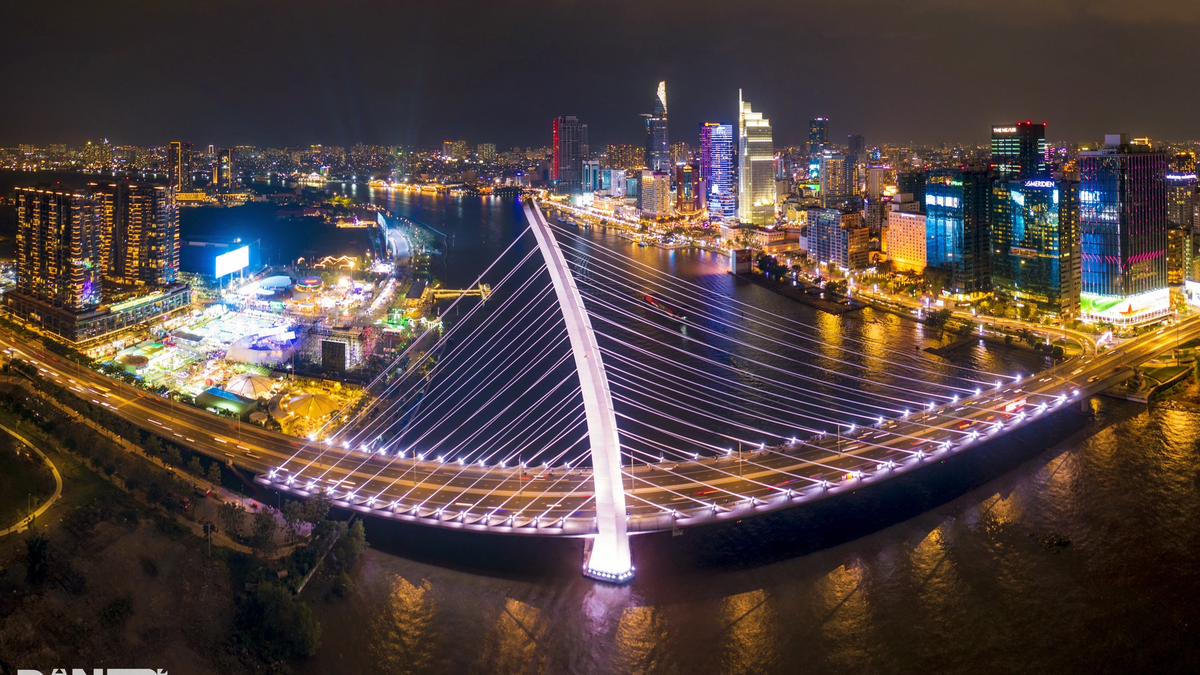
![[Photo] General Secretary attends special art program "Spring of Unification"](https://vphoto.vietnam.vn/thumb/1200x675/vietnam/resource/IMAGE/2025/4/29/e90c8902ae5c4958b79e26b20700a980)


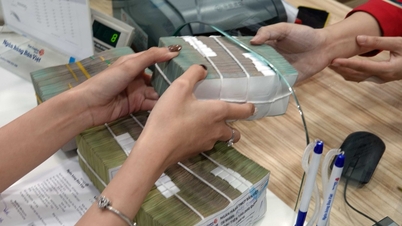

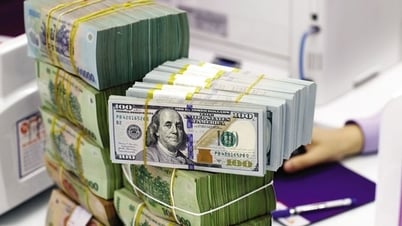






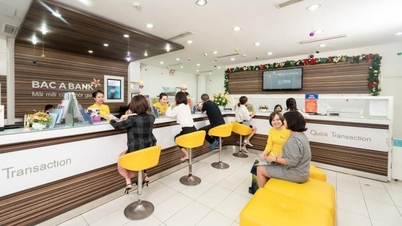




![[Photo] Prime Minister Pham Minh Chinh meets to prepare for negotiations with the United States](https://vphoto.vietnam.vn/thumb/1200x675/vietnam/resource/IMAGE/2025/4/29/76e3106b9a114f37a2905bc41df55f48)





























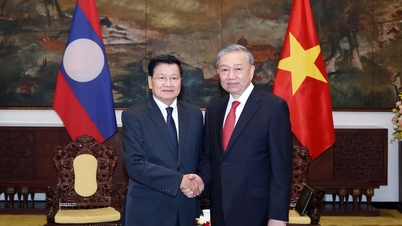

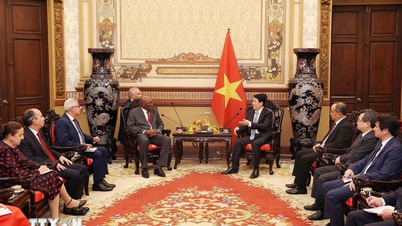


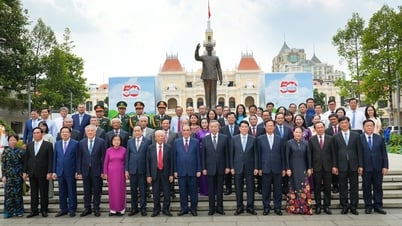






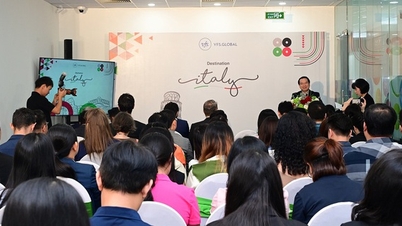

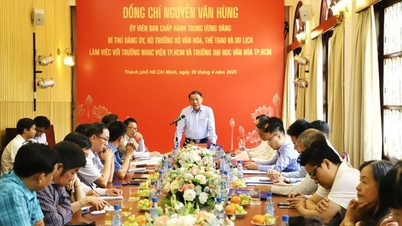
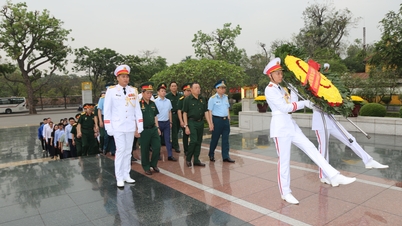























Comment (0)